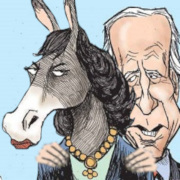|
I was digging through the SomethingAwful archives and found my first essay on the attention economy, written on April 5th, 2011. At the time, Bitcoin had yet to experience it's first bubble and was still trading below a dollar, and Occupy Wall Street was still five months in the future. If you don't have access to the archives, the thread which prompted this first write up was titled "No More Bitchin: Let's actually create solutions to society's problems!" Despite my reputation on this forum, I'm not interested in pop speculative futurism or idle technoidealism. I don't think there's an easy technological fix for our many difficult problems. But I do think that our technological circumstances have a dramatic impact on our social, political, and economic organizations, and that we can design technologies to cultivate human communities that are healthy, stable, and cooperative. The political and economic infrastructure we have for managing collective human action was developed at a time when individual rational agency formed the basis of all political theory, and in a networked digital age we can do much better. An attention economy doesn't solve all the problems, but it provides tools for addressing problems that simply aren't available with the infrastructure we have available today. My discussion of the attention economy was aimed at discussing social organization at this level of abstraction, with the hopes that taking this networked perspective on social action would reveal some of the tools necessary for addressing our problems. . In the three years and multiple threads since that initial post, I've done research into the dynamics and organization of complex systems and taught myself some of the math and theory necessary for making the idea explicit and communicable. And in that time the field of data science has grown astronomically, making a variety of tools and theoretical resources available for modelling and predicting the dynamics of complex networks. In general, the public discourse has become much more comfortable thinking about attention and network dynamics and its implications. Some of that discussion is gross hype and misrepresentation, but some of it is really giving us unprecedented pictures of our collective behavior at large scales. And for this reason, more people have been articulating proposals that look quite a lot like the attention economy I've been describing. I'm not saying this vindicates my theory, but it suggests a possible convergence in in the direction I've been pointing. In any case, if I was going to make a new thread I didn't want to just vomit out some more impotent rhetoric. Instead, I wanted to give a specific, proposal of limited scope that can be addressed on is own merits independent of whatever reputation I've developed. So I wrote up a proposal for a new digital currency. quote:Strangecoin: the nonlinear currency I posted this on my blog yesterday, and it's received a fair bit of attention since then, largely driven by a fantastic discussion on Hacker News that gets a lot of the up-front reaction and criticism out of the way. There is also a less active thread on /r/BasicIncome that has a few interesting comments, and several comments on my blog. There's also been at least one scammer attempting to profit off the idea already. The idea isn't complete and there are obvious problems that need to be worked out. But given the reaction I've been seeing, the idea seems to be genuinely novel (something that surprised me, given the insane activity in the bitcoin world), and seems to be stimulating people's thinking in some interesting directions. The proposal is already more successful than I would have anticipated. So I'm pretty interested to see what this thread might do with it.
|
|
|
|

|
| # ? Apr 26, 2024 05:43 |
|
RealityApologist posted:...I'm not interested in pop speculative futurism or idle technoidealism.... *spits out drink in laughter, falls to floor convulsing*
|
|
|
|
I skimmed parts of your post and I kept thinking 'Why?' Why would we want an alternative currency? Why would we want a digital currency? Why should I read the rest of that blathering? Why did I even read the parts that I did read? Why? Why? Why?
|
|
|
|
That doesn't seem like a good idea. Attention and exchange in themselves aren't coterminous with utility.
|
|
|
|
Our prayers, they have been answered! Eripsa thread 4.0, On Stranger Currencies. 
|
|
|
|
R. Mute posted:Why? http://en.wikipedia.org/wiki/Principle_of_charity It's a basic principle of interpretation that you seem to have abandoned. Enjoy posted:That doesn't seem like a good idea. Attention and exchange in themselves aren't coterminous with utility. Nothing I've said commits me to thinking that they are. I respond to a similar question in the Hacker News thread as follows: https://news.ycombinator.com/item?id=7496699 quote:While it's not necessarily true that our exchanges need to account for value in this nonlinear way, I think it's an interesting thought experiment to discuss ways in which our currency can express different aspects of the value of our transactions. I'm not claiming that Strangecoin represents the "true value" of our transactions; I'm simply saying that it's another way to model our economic relations, and looking at the network in this way might reveal salient aspects of the network that are hidden from view with other currencies. So I think Strangecoin really is describing some aspect of our economic relations, and it's a perspective that money often doesn't give you. If you trade me money, I don't know where it came from or what ties it has to the rest of the economy. But if you trade me Strangecoin, the trade itself gives me a picture of your importance and influence on the rest of the economy, and I can use that information to judge the value of the trade we're engaged in.
|
|
|
|
RealityApologist posted:If I give you a dollar for a burger, then I've lost a dollar and gained a burger, and you've gained a dollar and lost a burger. Assuming this was a fair trade (that dollars and burgers are of approximately equal value), then as a result of the transaction we've simply rearranged who has which good, and no additional value was created in the process. What I've lost you've gained and vice versa, so that the total value between us has not changed after the exchange is over. You already lose, right here. If I trade my dollar for your burger, the only possible reason I would do that is because that burger is, for whatever reason, of more value to me than a dollar. Likewise, the only reason you would trade your burger for my dollar is because you feel that my dollar is, for whatever reason, of more value to you than your burger. Both of us come into the trade with certain assets, and we walk away with assets that are, to us, more valuable than what we came in with. Otherwise it makes no sense for us to trade. This is why we want people to trade as much as possible.
|
|
|
|
StarMagician posted:You already lose, right here. Read two paragraphs down, jumpy.
|
|
|
|
RealityApologist posted:http://en.wikipedia.org/wiki/Principle_of_charity
|
|
|
|
Yes, Virginia, it is possible to stay in grad school too long.
|
|
|
|
Eripsa why don't you actually respond to the question of 'why is this necessary or beneficial in any way' instead of using rhetorical tricks to dodge it? And as general advice you should probably answer that question to yourself every time you come up with a hare-brained techno-fetishist utopian pipe dream.
|
|
|
|
So, basically what you're saying is that you think Down and Out in the Magic Kingdom was a cool book?
|
|
|
|
icantfindaname posted:Eripsa why don't you actually respond to the question of 'why is this necessary or beneficial in any way' instead of using rhetorical tricks to dodge it? If a answer to a question isn't ten paragraphs of needless academic fluff, is it really an answer? You can't make a TA's eyes glaze over with brevity.
|
|
|
|
icantfindaname posted:Eripsa why don't you actually respond to the question of 'why is this necessary or beneficial in any way' instead of using rhetorical tricks to dodge it? I'm happy to answer serious questions about this work. It's really important to me, and I've been fielding questions all over the internet about it almost continuously since I posted the proposal. But the why question from R. Mute wasn't a sincere question. It was a troll, a knee jerk reaction like so many others have in this forum in response to me. It wasn't asked with an interest in a response, it was asked only to provoke a response. It's the why question of a child, and these questions have no satisfying answer. https://www.youtube.com/watch?v=BJlV49RDlLE I'm happy to respond to genuine questions, but I'm not going to feed trolls.
|
|
|
|
You might as well close the thread then, because I doubt anyone who posts here sincerely wants to wade into whatever goofy idea you're selling this time. Personally I just don't see the point, the only purpose of this idea is to serve as an intellectual exercise which is nice and all but you've got a bad track record of dealing with any sort of criticism so these threads always just end up hounding you for being too wedded to your niche ideas to actually follow through with the discussion you ostensibly desire. I think you're just looking to get your intellect stroked. boner confessor fucked around with this message at 00:21 on Mar 31, 2014 |
|
|
|
RealityApologist posted:I'm happy to answer serious questions about this work. It's really important to me, and I've been fielding questions all over the internet about it almost continuously since I posted the proposal. I don't know, I think "what pressing real world problem does this incredibly convoluted idea lifted straight out of a speculative sci-fi novel solve" is a reasonable question, but that's just me...
|
|
|
|
Could someone else ask him why for me. I'd do it myself, but alas, I'm a troll.
|
|
|
|
It's also kind of goofy that you would lead off the thread by invoking your bad reputation and then getting hissy when you immediately get softball trolls.
|
|
|
|
happening status: its
|
|
|
|
Popular Thug Drink posted:You might as well close the thread then. These threads have been a huge source of genuine criticism and creative contributions to these ideas, and have been a huge influence in the development of the idea over the last few years. You are all complete assholes who refuse to extend to me even the most basic courtesies required for a civil conversation, but as a product of your jocular jerking off the community as a whole has a pretty good grasp of the outlines of the idea and the critical issues at stake. Even if your views are mostly critical or overtly hostile, the history of discussion on this forum represents probably the best place on the internet to present new developments for critical analysis. That doesn't mean I have to feed trolls.
|
|
|
|
Does someone have the backstory for Eripsa's AV? I'm mildly curious
|
|
|
|
Again, the problems with your nutso plan is: Attention doesn't measure anything useful: People pay attention to distracting but unimportant things. Attention doesn't imply solutions. People might pay a lot of attention to a downed electrical wire. To interpret that attention would still take a human intelligence. Attention is fakeable: We can fake paying attention to stuff easily. Attention is buyable: You can offer people money to pay attention to stuff. There is hardly a worse idea of how to structure our economy than attention. If you were trying to make a horrible system, you couldn't do better than attention.
|
|
|
|
icantfindaname posted:Does someone have the backstory for Eripsa's AV? I'm mildly curious In the Erik Schmidt Obama's CEO thread Eripsa lamented how people had accepted Lanier's techno cynicism in place of his own borderline singularian ideals.
|
|
|
|
Obdicut posted:Again, the problems with your nutso plan is: There is not a word about attention in the proposal for Strangecoin.
|
|
|
|
You can't design a currency that forces people to be more responsible. This is something that would be effective in a world with significantly less income inequality and significantly more education and access to information. Whether or not it is successfully implemented exactly how you see it, there will be people who will find a way to exploit it or adjust it in such a way to benefit a minority.
FADEtoBLACK fucked around with this message at 00:38 on Mar 31, 2014 |
|
|
|
I read that thing and I don't understand why I'd want to use marblecoins. It seems like a huge amount of my time and energy as a regular dude for no other seeming benefit besides having a maximum income policy in place.
|
|
|
|
Zachack posted:I read that thing and I don't understand why I'd want to use marblecoins. It seems like a huge amount of my time and energy as a regular dude for no other seeming benefit besides having a maximum income policy in place. There is no maximum income for Strangecoins. There is a balance cap, but no income (or wealth, or influence) cap.
|
|
|
|
So the optimum Strangecoin strategy is to subdivide your personhood and create multiple poor identities instead of one rich one (I.E. using kids, spouses, dead relatives)?
|
|
|
|
How do you make this the standard? The biggest problems with cryptocurrency is that any idiot off the street can make their own currency. I'm going start making ToxCoins, they'll be worth thousands of BitCoins once I convince several major third world governments to adopt them, I swear! All this talk about alternative currencies and "hey let's make our own money, it will fix all problems, honest!" is that it fails to understand that you need a certain level of control at a systematic level to prevent problems that come about from currency manipulation, speculation, and the financial fuckery that banks get up to. A completely deregulated currency market where people can just make up whatever they want as a new currency is a profoundly stupid idea on so many levels. I don't care what you call it or what sorts of weird gimmicks you cram into a cyrptocurrency the whole idea is fundamentally flawed at its core. You see this in the fact that every new cyrptocurrency that comes out has its creators granting themselves a massive seed block of coins while trying to rope people into THEIR currency. Before long you're going to see more pyramid scheme bullshit cropping up with things like "hey if you adopt OUR currency early we'll give you some! It's literally free money!" which leads to rampant inflation. BitCoin, as we've seen time and time again, was a terrible idea and every "well it's like BitCoin but different" currency that comes out is just as dumb. Cryptocurrency is not the future. Let it die.
|
|
|
|
2 questions: 1. Have you ever had a job? 2. Have you ever bought anything with money you didn't get from your parents?
|
|
|
|
Allow me to give you a succinct critcism of your proposal and cryptocurrencies in general: they're more hosed than Caligula's horse. That'll be $20k in consulting fees, send it to my accountant in Bitcoins.
|
|
|
|
RealityApologist posted:You are all complete assholes who refuse to extend to me even the most basic courtesies required for a civil conversation I don't see any example comparable to tracking the increase in utility by tracking burgers and dollars exchanging. Can you give a worked example? quote:As the example suggests, the dynamics of Strangecoin might be usefully thought of in terms of a "reputation system" rather than a strictly financial tool, even though the basic mechanics involve the regular method of exchanging currency for goods perceived by both parties to be of equal value. Because of the nonlinear relationships among Strangecoin users, each user effectively draws on a network of support in each economic transaction, coupling its activity to the successes (and failures) of the that network of activity. The result is a model of the complex interdependencies within a community of economic agents, and the dynamics by which those networks develop and decay. For this reason, Strangecoin might have implications for quantifying the role of individual choices and responsibility in the context of corporate action, and for resolving other difficult issues in the management and ethics of collective economic action.
|
|
|
|
So, I'm going to start off by admitting that I didn't read the whole thing, that's mostly because structurally, I found the entire thing to be a mess. Section 1 (What's unique about StrangeCoin?) - State your problem first. Otherwise, you're just going to give me a bunch of features of StrangeCoin, maybe describe how it works, and I'll have no idea what those features are intended to accomplish. And in the mean time, I'll be trying to keep a bunch of features/facts in mind, with no actual framework to place them in. So, I pretty much skipped this section after getting to about the third bullet point. The reason to describe the thing you're constructing first is if you think it's neatness and the way it works is far more interesting than the problem it solves. Also, either way, try to establish some sort of framework/structure so that the reader isn't getting into details/features immediately. Remember the reader is not you - at any point in the write up, you should be able to answer: "What does the reader know at this point?" and "What does the reader need to know about next in order to understand what I'm describing?" Section 2 (Background and Motivation) - This section should be first. First paragraph basically only works if you ignore marginal utility. (You'll point this out in the third paragraph, but it's kinda too late. Simplify, but note that you're simplifying - otherwise it looks like you don't know what you're talking about.) Second paragraph - that's not what nonlinear means. You're describing non-zero sum (which is pretty clear, since you're contrasting StrangeCoin with zero sum games, but then you go and call it nonlinear. It may or may not be, but that's got nothing to do with it being non-zero sum). Third paragraph - you point out that your first paragraph is wrong. This is a problem - your first paragraph should introduce the problem/motivate the rest of the write up - you've just said that the reader could've skipped reading it, and not missed anything. Also a problem if section 2 is moved to be your first section. The first thing that your reader reads? A couple paragraphs down, you're going to say that it's wrong, and they could've skipped reading it in the first place. Not a promising start. Fourth paragraph - again, I still don't know what problem you're trying to solve. Based on the fourth paragraph, you're describing a model to track increases in utility that occur as the result of economic transactions. Okay, that's an interesting thing to do mathematically, may be helpful in economic modelling, but why would I want my currency to use this model? You need to state the problem you're trying to solve. Fifth paragraph - "as the example suggests" - what example? The only one I remember at this point is the first paragraph, and you spent the third paragraph telling me that it's wrong. Also, all the criticism mentioned for the fourth paragraph still apply. At this point, I have no idea what you're trying to do, why you want what you're trying to do to replace existing currencies, and I'm beginning to think that what you're presenting would work far better as part of economic model than anything anyone would want to use as a currency. At this point I stopped reading because I had no idea why I would want to continue. I may go back and read the later half just out of curiosity as to what the mathematics are/see if I can understand what you're trying to model, but other than mathematical curiosity, there's no real reason to continue.
|
|
|
|
RealityApologist posted:There is no maximum income for Strangecoins. There is a balance cap, but no income (or wealth, or influence) cap. The balance cap may as well be an income cap, otherwise when I approach the balance cap I'll start cashing out into other forms of currency like bitcoins or gold bars or actual dollars. The only real difference is that the income cap can be avoided by constant spending/consuming, which seems like a drawback.
|
|
|
|
Republican Vampire posted:So, basically what you're saying is that you think Down and Out in the Magic Kingdom was a cool book? It won't be real until he develops the Google Glass app, allowing us to constantly check our
|
|
|
|
Why is it desirable for income to equal expenses rather than exceed it? Why is it desirable to have a balance cap? What stops evasion of the balance cap by increasing spending, or trading to subsidiaries?
|
|
|
|
I'm ADHD and can't pay attention very well, does this mean I'm rich or poor in an attention economy?
|
|
|
|
Guys, guys, I suddenly found myself with a surplus of burgers. Do any of you have a surplus of single dollars? TIA. EDIT: It's a subscription to burgers, so we can have an ongoing economic relation TURN IT OFF! fucked around with this message at 01:26 on Mar 31, 2014 |
|
|
|
What kind of University would let someone write like this? If every other academic can condense their ideas into a 150 word abstract then so can you.
|
|
|
|

|
| # ? Apr 26, 2024 05:43 |
|
Oh good, Buttcoin is back.
|
|
|

































